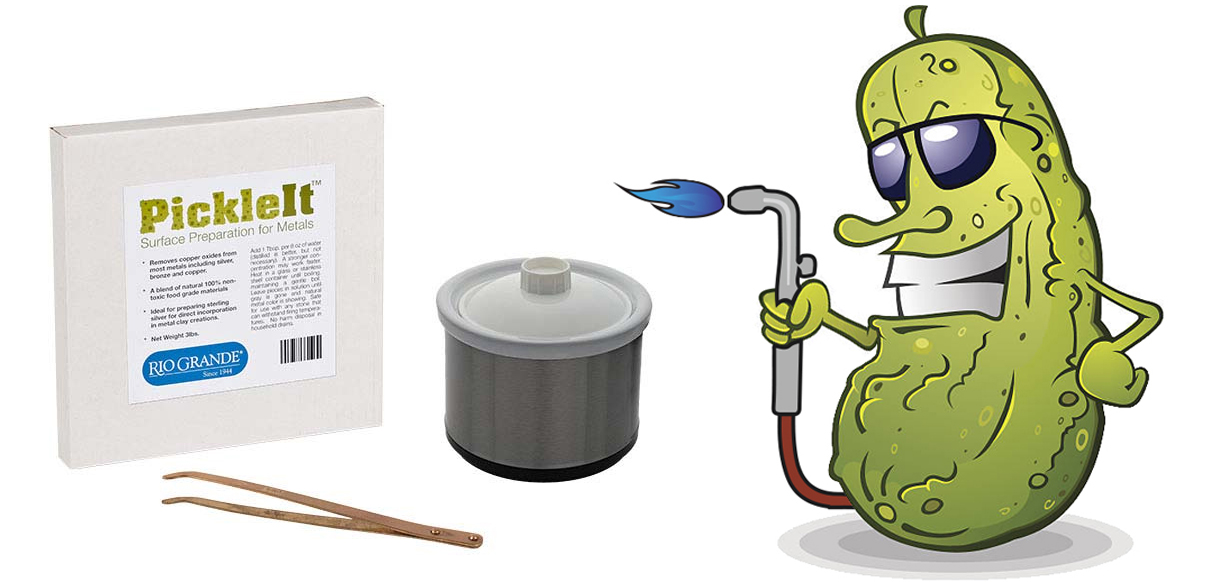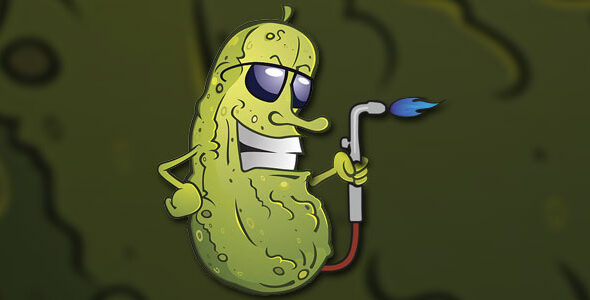
Firescale can be an irksome layer of oxides that appears on copper alloys during heating. This unwelcome tarnish mutes the beauty of your metal creations. Fortunately, my journey through metalsmithing introduced me to a trusted ally in the fight against firescale: the enchanting elixir known as “pickle.”
A Timeless Tradition
The tale of pickle in metalsmithing spans centuries. Picture medieval artisans toiling over molten creations. They used a simple mixture of alum and water to cleanse their metal after soldering and annealing. The term “pickle” reflects its culinary roots—alum is a key ingredient in transforming cucumbers into pickles. This delightful connection enriches the tradition.
Modern-Day Pickling Solutions
Today, the legacy of pickle continues in diverse forms. While many artisans still prefer alum, a treasure trove of alternatives has emerged. Contemporary metalsmiths explore options like dilute sulfuric acid solutions, citric acid concoctions, and the industrial gem known as Sparex, specifically tailored for jewelry making. For those seeking cost-effective solutions, swimming pool chemicals like pH Minus and pH Down effectively tackle firescale.
Meet My Favorite Pickle Solution
My personal go-to pickle solution is called PickleIt™. This pickle is a blend of natural, 100% non-toxic, food-grade materials that remove flux residue and oxidation from silver, bronze and copper. This formula is non-harsh and easy-to-use! Simply mix a measured amount of PickleIt™ in hot water and it’s ready to use. Pickle may be used over and over again. The fresher the solution, the quicker it cleans the firescale. The more times a batch of pickle is used, the longer it takes to get the desired effect of the solution.
Conveniently, I do not heat my solution. I tend to let the pieces sit in the pickle for quite some time in order for all of the firescale to be removed. I don’t mind the sacrifice of time since I am going the non-toxic route with the pickle.
Read more about firescale in my blog called Firescale: Navigating Metal Oxidation.

